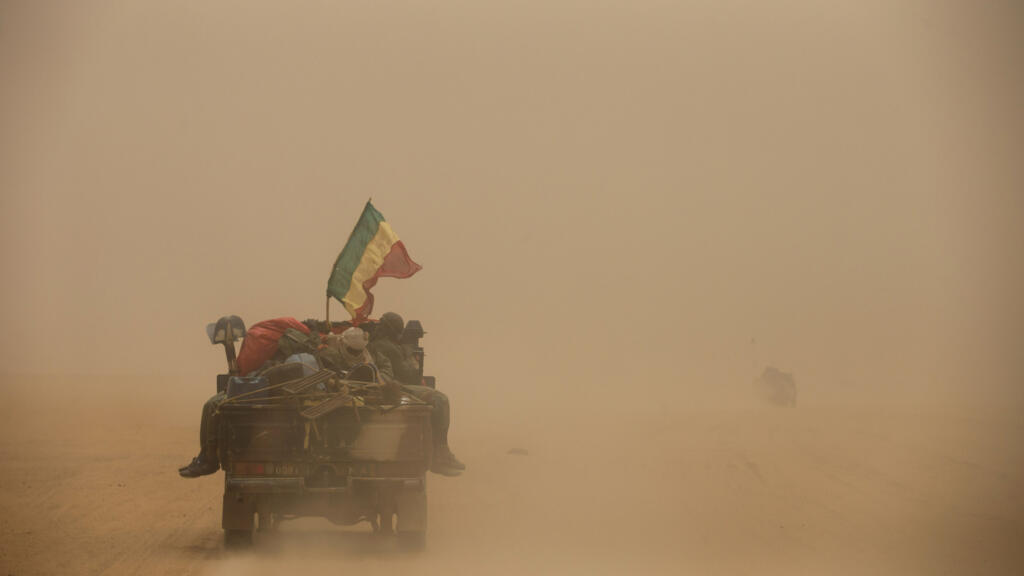Community radio stations are a vital source of information for isolated rural communities and sometimes even act as mediators with armed groups who listen to them. They play a major, yet often unrecognized, role in circulating information in conflict zones. For the first time, a documentary is dedicated to these local information relays in the Sahel: “Community Radios: Their Fight to Inform in the Sahel”.

“Thank you for being with us…” This is the voice of Fati Amadou Ali, the well-known host for listeners of the Voice of Tapoa, who since 2008 has been fighting for “a change in behavior, for the consideration of women.”
In the community radio station she runs in the southwest Sahel, an area regularly hit by attacks, and of which the documentary shows rare footage filmed by herself, Fati recounts the fruits of her daily struggle: “If you are a woman leader, you are seen as being on the other side. It’s as if you were a feminist. There are women who are even journalists, but society views them poorly. For example, where we are, 75% of female journalists are not married.”
Sexist Prejudices and Security Risks
Continuing to inform despite sexist prejudices, but also security risks. Ousmane Abdoulaye Touré, director of Radio Naata in Gao, the first radio station in the northern Sahel, lives every moment with this sword of Damocles, and the self-censorship that comes with it.
“We know what is good, we know what is bad, the words to use or not to use, we know that our profession is very dangerous. In our areas, we cannot say bandits or terrorists, we say ‘the bearded ones,’ because religion is associated with that!”
Despite the assassination of one of his colleagues in November 2023 in northern Mali, Ousmane wants to continue bearing witness and going to places where the state’s presence has sometimes disappeared.
“We are committed to informing, to also talking about the terror that reigns in our communities, because the communities are the ones suffering the most! Just look today at the number of closed schools, children being born without birth certificates, women giving birth without medical assistance,” he continues.
Through filmed interviews with these Sahel journalists, the documentary tells the story of their work as relays and witnesses, but also the urgency of better protecting these essential sentinels of information. One year ago, on September 24, 2024, 547 community radio stations from the Sahel and neighboring countries signed a call for the protection of the right to local information.
The documentary, Community Radios: Their Fight to Inform in the Sahel, pays tribute to five community radio journalists killed in the Sahel.
► Community Radios: Their Fight to Inform in the Sahel will air on November 18 on Arte.
“A correlation between the actual closure of local media and the penetration of disinformation”
There is a global stake in making local journalism and community radio visible and protecting them: “We have been able to measure it on an international scale, even in the United States, that there is a correlation
![[Image d'illustration] Un convoi de l'armée malienne entre Anefis et Gao, le 26 juillet 2013. [Image d'illustration] Un convoi de l'armée malienne entre Anefis et Gao, le 26 juillet 2013.](https://newscong.life/wp-content/uploads/2025/10/Convoi20armC3A9e20malienne20entre20Anefis20et20Gao20201320Rebecca20Blackwell20AP.webp)